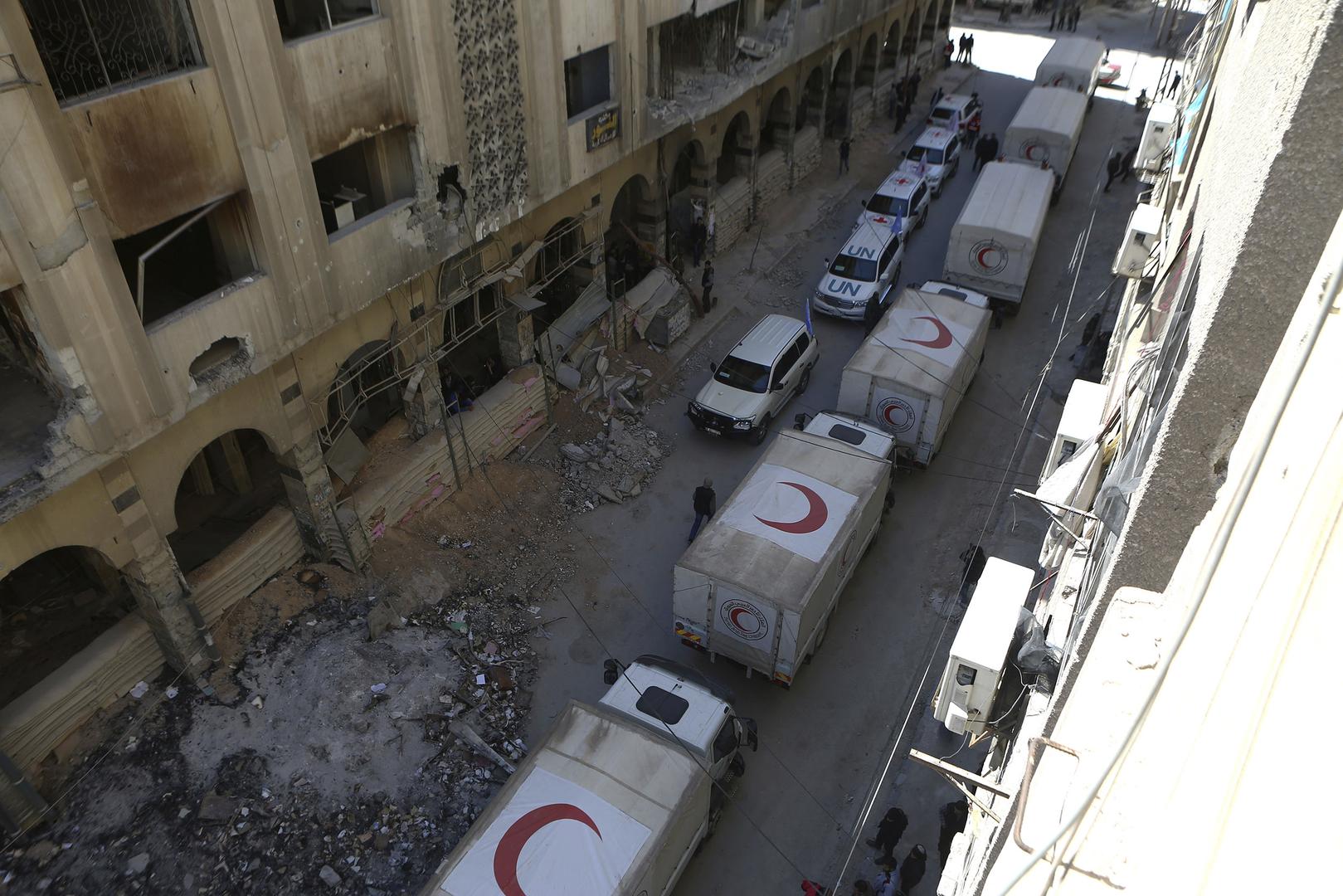
(Beirut) – United Nations agencies should activate the UN’s human rights framework for Syria in their aid plans, Human Rights Watch said today in a letter to the agencies that developed the principles. Major donors should support this effort at their meeting on November 24, 2020.
In recognition of the difficult operating environment for aid groups in Syria, the UN Department of Political Affairs (DPPA) and the UN Development Programme (UNDP) led the development of the UN Parameters and Principles for Assistance in Syria, a human rights-based framework that should apply to all UN agencies operating in Syria. The secretary-general approved the guidelines, but the UN has taken no meaningful steps to incorporate them in Syrian aid programs.
“The UN has already developed a framework that can help aid agencies ensure that they are able to operate in Syria in accordance with human rights principles,” said Sara Kayyali, Syria Researcher at Human Rights Watch. “But instead of relying on this framework, the UN appears to have relegated it to a forgotten corner while it continues its uphill struggle to provide principled humanitarian assistance in Syria.”
Since the beginning of the conflict in Syria, the Syrian government has developed a policy and legal framework that allows it to divert humanitarian aid to fund atrocities, punish those perceived as opponents, and benefit those loyal to it. It has restricted access of aid organizations to communities in need, selectively approving aid projects and imposing requirements to partner with local actors linked to the abusive Syrian security services.
The UN principles would require UN agencies operating in Syria to carefully consider the human rights and protection implications of their procedures, especially in determining where and how assistance is provided, and bar providing assistance to parties who have allegedly committed war crimes or crimes against humanity. The principles state that UN assistance shall be provided without prejudice to the goals of accountability for serious human rights violations. In October, the UN Working Group on Transnational Business and Human Rights affirmed the UN Parameters and Principles as an example of how forward planning for assistance in post-conflict settings should proceed.
The Syrian government’s restrictions on aid groups have extended to assistance during the coronavirus pandemic. Human Rights Watch found that aid agencies continue to face significant longstanding obstacles in transporting materials and personnel from Damascus to nongovernment-controlled areas of northeast Syria as well as within government-held areas, including delays in permission to move aid shipments, barriers to collecting test samples, and the discriminatory distribution of protective personal equipment.
In July 2020, Oxfam and the Norwegian Refugee Council published a report that also describes the difficulties that both groups have faced when operating in government-held areas. These include bureaucratic obstacles that can lead to months of delays, difficulties negotiating certain types of humanitarian activities with government authorities, limits to engaging directly with communities, and lack of funding to scale up quickly.
The situation has become more urgent with the closure of three of the four border crossings that were previously authorized by the UN Security Council. UN agencies relied on the crossings to deliver assistance to areas not under the control of the Syrian government but now are increasingly dependent on the Syrian government’s cooperation to deliver assistance to these areas.
A February report from the UN secretary-general that assessed the impact of the border closures showed that a range of bureaucratic obstacles in late 2019 and early 2020 makes the “crossline delivery of medical items … particularly restrictive.” It said that operations from Damascus have not compensated for the closure of the cross-border operations
Human Rights Watch urged the UNDP and DPPA in its letter to ensure that the Parameters and Principles are included in the Syria aid plans for each UN agency involved, including by:
- Ensuring that all agencies incorporate these principles into their operations, including at the program design, procurement, proposal development, and assessment stages, and monitoring their progress regarding implementation;
- Requiring UN agency staff in Syria to report back regularly and transparently on problems they face to the Working Group for the Parameters and Principles, the multi-disciplinary group mandated to monitor adherence to the principles and parameters;
- Ensuring that regional UN staff, the donor-humanitarian contact group, and external actors can also refer the problems with the humanitarian operations to the Working Group;
- Ensuring that the Working Group meets regularly and sets in place collective plans for resolving problems, with the guidance and support of donors and external experts.
“Between the coronavirus pandemic and the gutting of the cross-border resolution, the need for humanitarian assistance in Syria has never been greater,” Kayyali said. “By turning a blind eye to the problems humanitarian operations face, the UN and donors are risking making the problems worse and making it harder to get aid to those who need it the most.”
"assistance" - Google News
November 23, 2020 at 12:01PM
https://ift.tt/39f7wlI
UN: Implement Human Rights Principles for Assistance in Syria - Human Rights Watch
"assistance" - Google News
https://ift.tt/2Ne4zX9
Shoes Man Tutorial
Pos News Update
Meme Update
Korean Entertainment News
Japan News Update
Bagikan Berita Ini














0 Response to "UN: Implement Human Rights Principles for Assistance in Syria - Human Rights Watch"
Post a Comment